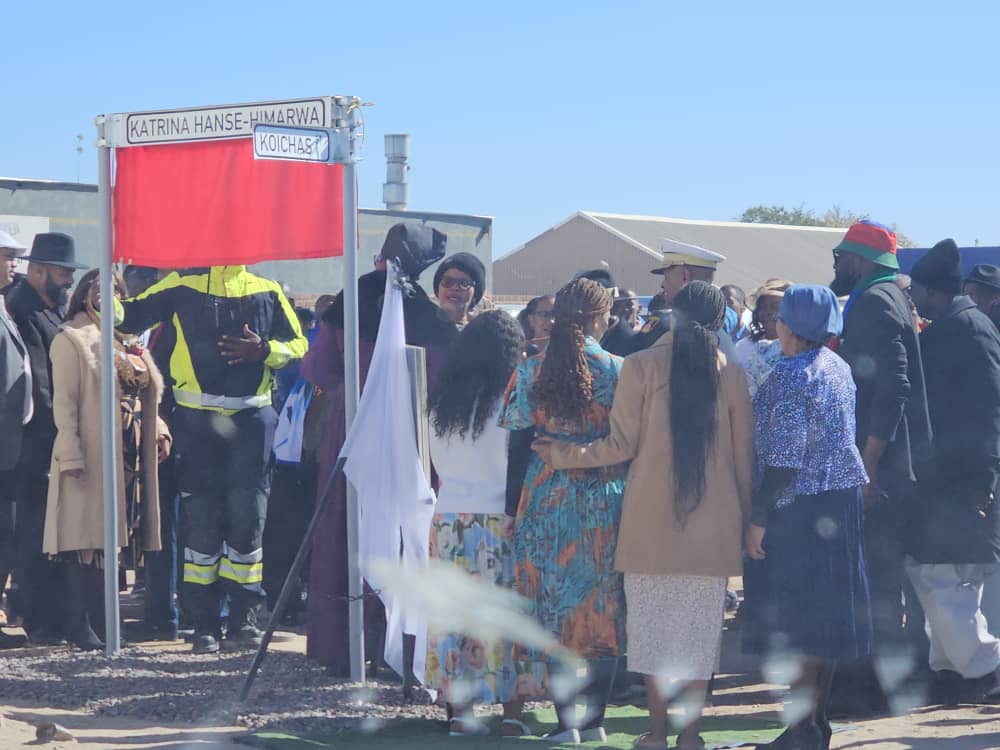Namibia, a country with a rich tapestry of cultures and history, reached a watershed moment on 21 March 1990, when it gained independence from the South African apartheid regime, transforming the country into a beloved symbol of international solidarity.
This moment was more than just a geopolitical shift: It catalysed societal transformation, paving the way for progress in various areas, including gender equality, economic development and tourism.
As the nation celebrates its 34th anniversary under the theme ‘A People United for Prosperity’, I want to reflect on Namibia’s progress since independence, particularly regarding gender issues and to highlight women’s roles in Namibian society and their significant achievements in politics and decision-making.
EQUALITY AND LEGISLATIVE MEASURES
Before Independence, Namibia was and to a large extent still is, patriarchal, with few opportunities for women in various fields.
The struggle for independence marked an important milestone, with women playing critical roles as caregivers and active participants in the liberation struggle.
Following independence, the Namibian government deliberately addressed gender disparities, incorporating gender equality into the very fabric of the country.
Namibia’s Constitution and legislative framework prioritise gender equality and promote women’s rights.
As absurd as it may sound, under the former apartheid regime there were 13 laws that legally discriminated against women.
The fact that women were minors who required their husbands to sign on their behalf, that they could not own or inherit property, have access to bank loans, or be paid equally for the same job as men, were all legal.
When Namibia gained independence, the government took deliberate steps to change these draconian laws that discriminated against women.
Notable examples include the National Gender Policy, the implementation of the 50/50 gender policy in political parties and regulations, aimed at combating gender-based violence and promoting marriage equality.
These measures reflect the country’s commitment to creating an equitable society.
REPRESENTATION IN POLITICS AND DECISION-MAKING
The increased representation of women in politics is one of Namibia’s most notable achievements in terms of gender equality.
Namibia is a shining example of progress in Africa, with 47% of the country’s parliamentarians being women.
This achievement not only demonstrates a commitment to gender inclusivity but also acknowledges the role of women’s voices and perspectives in shaping the country’s future.
Who would have expected Namibia to have two women in the top three positions in government (vice president and prime minister) at this year’s independence celebrations?
While the nation has yet to come to terms with the singularity of the event that accelerated the upward trajectory of women leaders, we should celebrate the collective wisdom of the leadership to recognise and trust Namibian women’s leadership competencies.
The significant increase in women’s representation in political and decision-making roles demonstrates the government’s efforts to promote gender equality. Women now hold key positions in the judiciary, parliament and the private sector, indicating a trend towards inclusivity in governance and business.
CONCLUSION
As we reflect on Namibia’s progress towards gender equality, we must acknowledge that there is still work to be done.
Gender-based violence, economic disparities and harmful cultural norms all continue to limit women’s full participation in all spheres of national development. However, by highlighting and learning from previous successes, Namibia can continue to pave the way for a more just, equal and diverse society for all its citizens.
Namibia has set an excellent example by empowering women, increasing their representation in decision-making processes and investing in their education and health.
As we commemorate these achievements, let us recommit to advancing the cause of gender equality and ensuring that every individual has the opportunity to reach their full potential.
The progress in enhancing women’s roles in Namibian society, from legislative changes to increased political participation, demonstrates a broader commitment to gender equality and national development.
Namibia’s journey serves as a beacon of hope, showing that significant progress in gender equality is possible with concerted efforts and inclusive policies. Namibia’s continued commitment to these ideals ensures a brighter future for all its citizens, distinguishing it not only as a country of stunning landscapes but also as a nation where equality and progress coexist.
Happy Independence, fellow Namibians!
- * Michael Conteh is gender expert and social justice advocate. He can be reached at linsobob@gmail.com
Stay informed with The Namibian – your source for credible journalism. Get in-depth reporting and opinions for
only N$85 a month. Invest in journalism, invest in democracy –
Subscribe Now!






